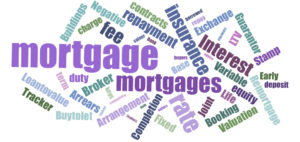

ADVERSE BROKER WINNER
See if you pre-qualify for a mortgage
Getting a mortgage with a CCJ:
Having a CCJ can be stressful and many people believe that this will totally prevent them from accessing credit, like a mortgage- but that isn’t always the case. Highstreet lenders rarely look favourably on credit issues like a CCJ, but there are plenty of specialist lenders who take your current financial situation into account, taking a more open approach and considering all factors. Our brokers have access to these lenders, meaning they could help you find a mortgage even after a CCJ.
Is the CCJ satisfied?
Getting a mortgage with a satisfied CCJ will be far easier, but this doesn’t define your chances. If you’re still in a CCJ lenders will look at:
How long ago was it?
Specialist lenders will prioritise how recent the CCJ was when considering you for a mortgage. Many require that any CCJ was settled within the last 12 months. However, the more time since the CCJ was registered, the higher your chances are of getting a mortgage.
The amount of the CCJ
The size of the CCJ is typically less important to the lender than the date of registration; however, it is still taken into consideration. If the CCJ is over 3 years old then any value is usually considered. However, if the CCJ is within 2 years old then it is typically limited to around £2,500 and if it’s within the last year a maximum of £1,000.
Mortgage application process
4 simple steps for applying for a mortgage. See more about the mortgage application process here
Complete our
pre-qualify form
Let us know a few details about the mortgage you require
A mortgage specialist will call
One of our brokers will call and get a few more details of your requirements
We search for your perfect mortgage
We will search the market for the best rates for your circumstances
A Decision in Principle is made
We will secure a DIP with a lender, if you approve we move forward with a full application.
Whatever your mortgage goal, there will be something for you

We're on a mission to save you money on your mortgage
- Over 100 lenders
- Personalised Advice Service
- 1000s of products and access to exclusive rates
- Tailored recommendations to your individual needs
- We do the application on your behalf
- Secure Online Portal for document upload
- We liaise with all parties on your behalf
- Helping you even where others have said no
- Excellent Reviews
Arrange a callback
We specialise in helping people find a mortgage and remortgage.
We require your details only once and we’ll know the best lenders for your circumstance and give you the best rates.
What should I do next?
There are many ways to contact us
Enquire online – our simple online form takes just a few minutes.
Give us a Call – our qualified advisers will assess what you are looking and do all the hard work for you searching the market – 0330 232 0285.
Ask for a callback – havent got time now? Ask us to call you back and a time / day convenient to yourself. Call me back.
LiveChat – message us here and tell us what you are looking for our agents are on hand to help.
Mortgage with a CCJ FAQ
Yes, it is possible to get a mortgage with a County Court Judgment (CCJ) on your credit record, but it may be more difficult than obtaining a mortgage without one. A CCJ is a court order that can be issued against you if you fail to pay a debt, and it will typically remain on your credit file for six years.
When you apply for a mortgage, lenders will assess your credit score and history. A CCJ on your record will likely be viewed negatively by lenders, as it indicates a past failure to pay a debt.
However, some mortgage lenders will still consider your application, depending on the severity of the CCJ and how long ago it was issued. If the CCJ is relatively small and has been satisfied, meaning you have paid it off in full, it may be seen as less of a risk to lenders. If the CCJ is still outstanding, it may be more difficult to obtain a mortgage.
It’s worth noting that lenders may also consider other factors when deciding whether to approve a mortgage application, such as your income, employment status, and the size of your deposit. Working with a mortgage broker who has experience in dealing with CCJs can help you find lenders who are more likely to approve your application.
A County Court Judgement (CCJ) is a court order that creditors can apply for against you if you don’t repay money owed. If the courts issue the CCJ, this means they agree with your creditor and will order you to pay the money back. You’ll usually have fair warning of this happening through a court summons and a CCJ will usually follow late payment notices and a default letter.
If you pay the full amount owed within one month of the CCJ being issued, it shouldn’t be recorded however if you fail to do this and your CCJ is recorded, it’ll stay on the register for 6 years.
A County Court Judgment (CCJ) in England, Wales or Northern Ireland will typically remain on your credit file for six years from the date it was issued, even if you have paid it off in full. This means that the CCJ will be visible to potential lenders for that period, which could impact your ability to obtain credit during that time.
It is possible to have the CCJ removed from your credit file earlier than six years if you pay it off within one month of the judgment being issued. This will require you to apply for a “certificate of cancellation” from the court that issued the judgment, which will confirm that the CCJ has been satisfied.
If you pay the CCJ off more than one month after it was issued, the judgment will still remain on your credit file for six years, but it will be marked as “satisfied” on your credit report. This means that potential lenders will be able to see that you have paid off the debt in full, which could improve your chances of obtaining credit.
If you receive a County Court Judgment (CCJ) in England, Wales or Northern Ireland, it means that a court has issued an order for you to pay a debt you owe. The CCJ will be registered with credit reference agencies and will appear on your credit report for six years, which can negatively impact your credit score and make it harder to obtain credit in the future.
If you receive a CCJ, there are several options available to you:
- Pay the CCJ in full: If you can afford to do so, paying the CCJ in full within 30 days of the judgment being issued will prevent it from being registered on your credit report. Although any arrears or defaults which led to the CCJ will remain for 6 years.
- Pay the CCJ in instalments: If you cannot pay the CCJ in full, you can contact the court and arrange to pay it in monthly instalments.
- Set aside the CCJ: If you believe that the CCJ was issued unfairly or you were not given an opportunity to defend yourself, you can apply to have the CCJ set aside. This means that the CCJ will be removed from your credit report.
Something that you shouldn’t do is, ignore the CCJ: Ignoring the CCJ can have serious consequences. The creditor can take enforcement action against you, such as sending bailiffs to your home or deducting money from your wages or bank account. This can also increase the amount you owe as additional fees and interest may be added.
It’s important to seek advice and support if you receive a CCJ to explore your options and avoid any negative consequences. You may wish to speak to a debt advice charity or seek legal advice to understand your rights and options.
You do not need to clear a County Court Judgment (CCJ) before applying for a mortgage, but it can make it easier to obtain mortgage approval.
Having a CCJ on your credit report can make it more difficult to obtain a mortgage, as it can negatively impact your credit score and make you appear less creditworthy to lenders. Even if you are approved for a mortgage with a CCJ on your credit report, it may result in higher interest rates or a smaller mortgage amount.
Clearing a CCJ by paying it off in full can help improve your credit score and demonstrate to lenders that you are capable of managing your debts. If you have a CCJ on your credit report, it’s important to ensure that it is marked as “satisfied” on your credit report once you have paid it off.
If you are applying for a mortgage with a CCJ on your credit report, it’s important to be upfront with the lender and provide all relevant details. Working with a mortgage broker who has experience in dealing with CCJs can also help you find lenders who may be more likely to approve your application.
Having a CCJ can be stressful and many people believe that this will totally prevent them from accessing credit, like a mortgage- but that isn’t always the case. Highstreet lenders rarely look favourably on credit issues like a CCJ, but there are plenty of specialist lenders who take your current financial situation into account, taking a more open approach and considering all factors. Our brokers have access to these lenders, meaning they could help you find a mortgage even after a CCJ.
Factors to consider:
Specialist lenders will look more towards your circumstances and consider:
Is the CCJ satisfied?
Getting a mortgage with a satisfied CCJ will be far easier, but this doesn’t define your chances. If you’ve still got a CCJ lenders will look at:
How long ago was it
Specialist lenders will prioritise how recent the CCJ was when considering you for a mortgage. Many require that any CCJ was settled within the last 12 months. However, the more time since the CCJ was registered, the higher your chances are of getting a mortgage.
The amount of the CCJ
The size of the CCJ is typically less important to the lender than the date of registration; however, it is still taken into consideration. If the CCJ is over 3 years old then any value is usually considered. However, if the CCJ is within 2 years old then it is typically limited to around £2,500 and if it’s within the last year a maximum of £1,000.
It is possible to get a mortgage with two or more County Court Judgments (CCJs) on your credit report, but it may be a little more difficult.
Having multiple CCJs on your credit report can make you appear less creditworthy to lenders, as it suggests that you have had difficulty managing your debts in the past. As a result, you may find that some lenders are unwilling to approve your mortgage application.
However, there are specialist mortgage lenders who cater to borrowers with adverse credit histories, including those with CCJs. Lenders may be more open to your application. They may be able to offer more flexible mortgage terms, for example higher interest rates or a smaller mortgage amount.
To improve your chances of obtaining a mortgage with multiple CCJs, it’s important to take steps to improve your credit score, such as paying off outstanding debts and ensuring that all of your bills are paid on time.
Consider working with a mortgage broker who has experience in dealing with adverse credit mortgages, as they know who are more likely to approve your application.
It’s important to be upfront and transparent with lenders about your credit history, including any CCJs on your credit report. This can help build trust and demonstrate that you are taking steps to manage your debts responsibly.
There are steps you can take to help increase your chances of getting a mortgage with, or after a CCJ.
Keep up repayments:
Make sure you keep up all credit and CCJ repayments. Missing payments can impact your credit score further and could risk your creditor taking further action. Keeping up your repayments can help show potential lenders that you can be a responsible borrower and over time will help repair your credit score.
Avoid multiple credit applications:
If you’re looking for a mortgage with a CCJ, you might struggle to find a high street lender that will accept your application and making several failed applications, in a short space of time, can impact your credit report.
Going through a specialist bad credit broker, like Clever Mortgages, can help you find lenders that are likely to accept your application, sometimes accessing better rates and deals through the specialist lenders we work with.
Close old accounts:
If you’ve got any old credit accounts that you’re not using, make sure you close them. Having many open accounts can negatively impact your credit score, so closing unused ones can help boost your score.
Employment:
Like with all credit agreements repayment ability is a big factor. Having stable employment, or consistent employment in the same field helps boost your application and make you a more attractive borrower.
Keep track of your credit report:
Whilst Clever Mortgages can run a credit report for you, there are three main credit reference agencies in the UK, Experian, Equifax and TransUnion. You can view your credit report online using these agencies. Your credit report shows you what lenders can see when they’re considering you for credit, and keeping track of your report can help you better understand your credit and what influences it.
Save up a large deposit:
Whilst it might be difficult at the time of experiencing a CCJ. As with most bad credit circumstances, a large deposit vastly increases your chances of getting your mortgage application approved. With a large deposit, it means the amount you need to borrow is less, resulting in a lower LTV ratio. A lower LTV makes you a better prospect and less risky for a lender, meaning you’re more likely to get a better interest rate.
Unless paid within 30 days, a recorded CCJ will stay on your credit report for 6 years and can negatively impact your credit score. You’ll also need to take into account the late payment notices and default that would have occurred leading up to your CCJ which will appear on your credit report.
Late payments: a late payment recorded on your credit report will stay there for 6 years, however the impact it has on your score reduces with time.
Defaults: a default will also last 6 years from the date of default.
You can check your credit score for free here
It is possible to get a County Court Judgment (CCJ) removed from your credit file, but it can be difficult and requires certain conditions to be met.
The first option is to pay the CCJ in full within one month of it being issued. If you pay the CCJ within this timeframe, it will not appear on your credit file at all. Although any arrears or defaults which led to the CCJ will remain for 6 years.
If you did not pay the CCJ within one month, it will be recorded on your credit file for six years, even if you pay it off later. However, you can apply to have the CCJ marked as “satisfied” on your credit file once you have paid it off. This means that the CCJ will still appear on your credit file, but it will show that the debt has been paid in full.
You may also be able to apply to have the CCJ set aside or removed from your credit file if you believe that it was issued unfairly or in error. This can be a complex and time-consuming process, and it’s important to seek legal advice or support from a debt advice charity if you are considering this option.
It’s worth noting that if you do manage to get a CCJ removed from your credit file, this does not necessarily mean that you are free from any legal obligations related to the debt. You may still be liable to pay the debt, and the creditor may take further legal action to recover the debt if necessary.
Yes, the size of the County Court Judgment (CCJ) can affect your mortgage application, as it is an indicator of your ability to manage debt.
A larger CCJ can indicate that you have had more significant financial difficulties in the past, and lenders may be more cautious about lending to you as a result. Lenders will typically assess your creditworthiness based on a number of factors, including your income, employment history, and credit score. However, a large CCJ on your credit file can have a negative impact on your credit score, which can make it more difficult to obtain a mortgage.
In addition, the size of the CCJ may also impact the amount that you are able to borrow. Lenders will typically look at your income and other financial obligations to determine how much you can afford to borrow. A larger CCJ can reduce the amount that you are able to borrow, as it suggests that you may have more difficulty making repayments.
It’s important to be upfront with lenders about any CCJs on your credit file and to provide as much information as possible about your financial situation. Working with a mortgage broker who has experience in dealing with adverse credit mortgages can also help you find lenders who may be more willing to consider your application, even if you have a large CCJ on your credit file.
If you miss payments on your CCJ, further action can be taken against you. This could include:
- Using bailiffs to take control of your belongings
- Obtaining an ‘attachment of earnings order’, where the creditor takes deductions from your wages before you receive them
- If your debt is a secured loan, the creditor could seek to repossess your property
It’s important to meet all repayments on a CCJ. If you can’t afford to pay it in full, you can usually agree on a monthly instalment plan with your creditor.
Most of our customers have had some form of credit difficulties, from low credit score, missed payments or declined a mortgage elsewhere.
- Valuable knowledge, through years of experience helping customers
- Bad credit / poor credit experts
- Find the right mortgage first time
- Some mortgages are only available through a broker
- Help with the application process
- Advice on all options available, such as help to buy, guarantor or shared ownership
Watch our video on the mortgage application process
Below are some of the lenders we work with















There are many reasons why you may want to consider a remortgage, even if you have bad credit. You may just need a better interest rate, which could save you money each month or give you security of payment. Perhaps you wish to raise additional funds to consolidate debts or make improvements to your home.
Whatever your need, we have access to a wide range of products and could help to secure you finance no matter what your circumstances.
Case Study
Securing a mortgage for one customer who’d previously been declined because of a CCJ
We help customers do just that. Our customer Mr Z was able to:
Take out a mortgage of almost £300,000 even though his wife had a CCJ and other previous defaults Secure a fixed rate of 1.73% for the initial 5 years Complete the purchase of his property in just one month
Mr Z wanted to buy a property but had previously been declined for a mortgage as his wife had bad credit, including a CCJ. At Clever Mortgages, we enabled him to:
Another reason why the couple’s previous mortgage application had been declined was because the new property was next door to the home of another family member.
Having access to so many products though meant we were able to secure a mortgage with a lender which was happy to offer them a mortgage despite the CCJ, previous defaults and the property’s proximity to another family home.
Completing the purchase within just one month was another factor which made this case so successful for the couple.
| Balance | Payment | Rate | Product | Term | |
|---|---|---|---|---|---|
| New Mortgage | £297,000 | £1,006.27 | 1.73% | 5 year fixed rate | 32 years |
| Balance | Payment | Rate | Product | Term | |
|---|---|---|---|---|---|
| New Mortgage | £63,900 | £362.86 | 3.09% | 2 year fixed rate | 20 years |
Mortgage with CCJ
You could still take out a mortgage even if you’ve had a CCJ
If you have a registered or settled County Court Judgement (CCJ), there are still mortgages available. As CCJs are issued when you haven’t paid money you owe, this can impact you taking out a mortgage. At Clever Mortgages we work with lenders that could accept your application.








